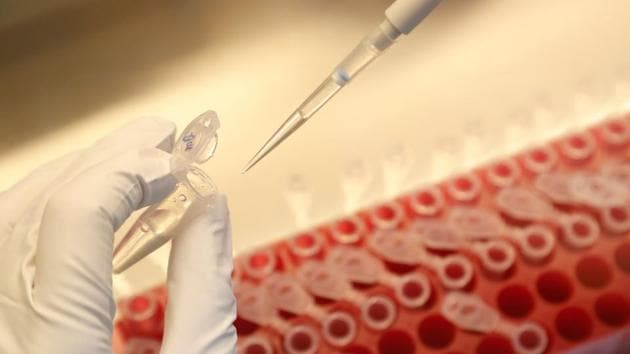India is key to the global battle against Covid-19
Beating the disease will require innovation, equity and global collaboration. India scores on all three counts
I was last in India in November. Back then, my meetings were about subjects such as financial services, rural poverty, and philanthropy. No one even mentioned the word “pandemic”. Just six months on, there is now talk of little else, with the world rocked by a disease, causing human, economic, and social misery on a scale most of us have not experienced in our lifetimes.

As Bill Gates shared with Prime Minister (PM) Narendra Modi, India’s response to Covid-19 to date is encouraging. The actions taken so far have kept the loss of life and livelihoods well below those experienced in countries in Europe and the United States (US). Our foundation is supporting this national response with technical assistance, digital tools, training for health care workers, and other programmes in Uttar Pradesh and Bihar. But like every other country in the world, India’s weapons against the virus are mainly limited to measures such as physical distancing, closing shops, stay-at-home orders, and suspending travel. That’s because there are no drugs to treat the disease, and no vaccine to stop people catching it in the first place.
The good news is that India is also responding to this global challenge. And the genius of its scientists, inventors and engineers,the capacity of its drug-manufacturers, its ability to meet the highest safety standards for medicines, and culture of collaboration put it at the forefront of the race to rescue the world from this pandemic.
Ultimately, beating Covid-19 will take innovation to get the solutions we need; equity to ensure they are affordable, available and accessible to everyone who needs them; and global cooperation because this is a challenge too immense for one country or one company to go it alone. Just consider what India has already accomplished on these fronts, and it’s clear that this is its moment to lead.
When it comes to innovation, India is already a significant player in global health research and development. Thanks to vaccines developed by Indian companies, including Serum Institute, BioE, and Bharat Biotech,who our foundation has partnered with, fewer children around the world than ever before are dying from diseases such as measles, pneumonia and rotavirus. This expertise gives India’s vaccines industry a significant advantage in developing cost-effective, quality-assured vaccines as it turns its attention to Covid-19.
Today, Indian companies have 30 potential vaccines in their pipelines, with several of the most promising backed by government funding. Our foundation is partnering with the department of biotechnology, the Indian Council of Medical Research, and the office of the Principal Scientific Adviser to provide insights from our global research and development work that might inform India’s vaccine development efforts.
And it’s not just vaccines. India already manufactures many anti-viral drugs that could be re-purposed and scaled-up for use in mild cases of Covid-19. Our foundation is also working with Indian pharma companies to look at the potential of transferring production techniques for drugs created by US pharmaceutical giants to Indian plants for manufacturing and global supply.
Then there is the issue of equity. With an ability to not only develop vaccines and medicines but a proven track record to manufacture them to a high standard, in high volumes and at low cost, India is critical to saving millions of lives in the poorest countries.
Beyond vaccines and treatment, India can offer unique solutions for the world. For example, the rapid development and deployment of affordable diagnostics and medical devices from basic test kits to ventilators and high-end medical equipment that are particularly suited for use in rural and remote villages with no electricity or regular power supply.
There is also a clear role for advanced technologies such as Artificial Intelligence to enhance diagnosis and contact tracing. Indian start-ups have been successfully piloting such efforts for a while, and these technologies could be crucial for frontline workers, especially where there is an acute shortage of doctors, radiologists, and other specialists.
Finally, on global collaboration, India has seen excellent results through cooperation with several international organisations, private companies, public sector research institutes, and academia. The rotavirus vaccine, ROTAVAC, for example, is a joint venture involving the Indian government, Bharat Biotech, the international non-profit PATH, the US Centers for Disease Control and Prevention, the National Institutes of Health, and others. If there is a breakthrough in the global efforts on Covid-19 research and development, Indian manufacturers have demonstrated the collaboration necessary to manufacture large quantities of cost-effective vaccines to deliver to a waiting world.
India — along with our foundation — is also a founding-member of the Coalition for Epidemic Preparedness (CEPI), which is overseeing a global effort towards a Covid-19 vaccine. And the country also has a role to play with multilateral endeavours which are critical to consign this virus to the history books.
The time is right for India to play a leading role in the fight against Covid-19. It has all the capability and capacity needed to do it. And as someone who has seen its remarkable transformation over more than a decade, I am more convinced than anyone of India’s strengths and potential. Now we need to make full use of them.The Bill & Melinda Gates Foundation stands ready as a partner to help India find a global solution to this global crisis.
Mark Suzman is chief executive officer, Bill & Melinda Gates Foundation
The views expressed are personal






